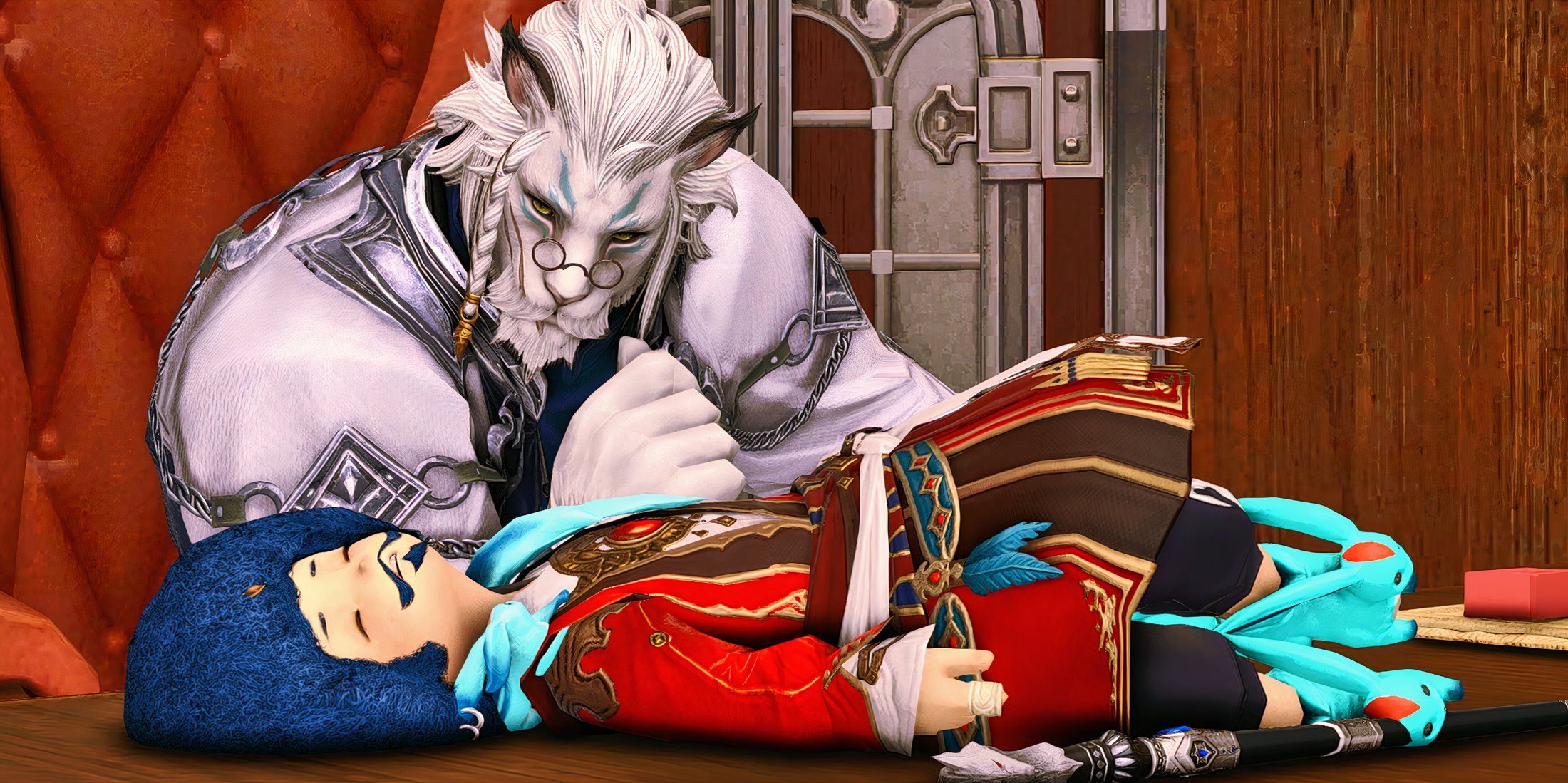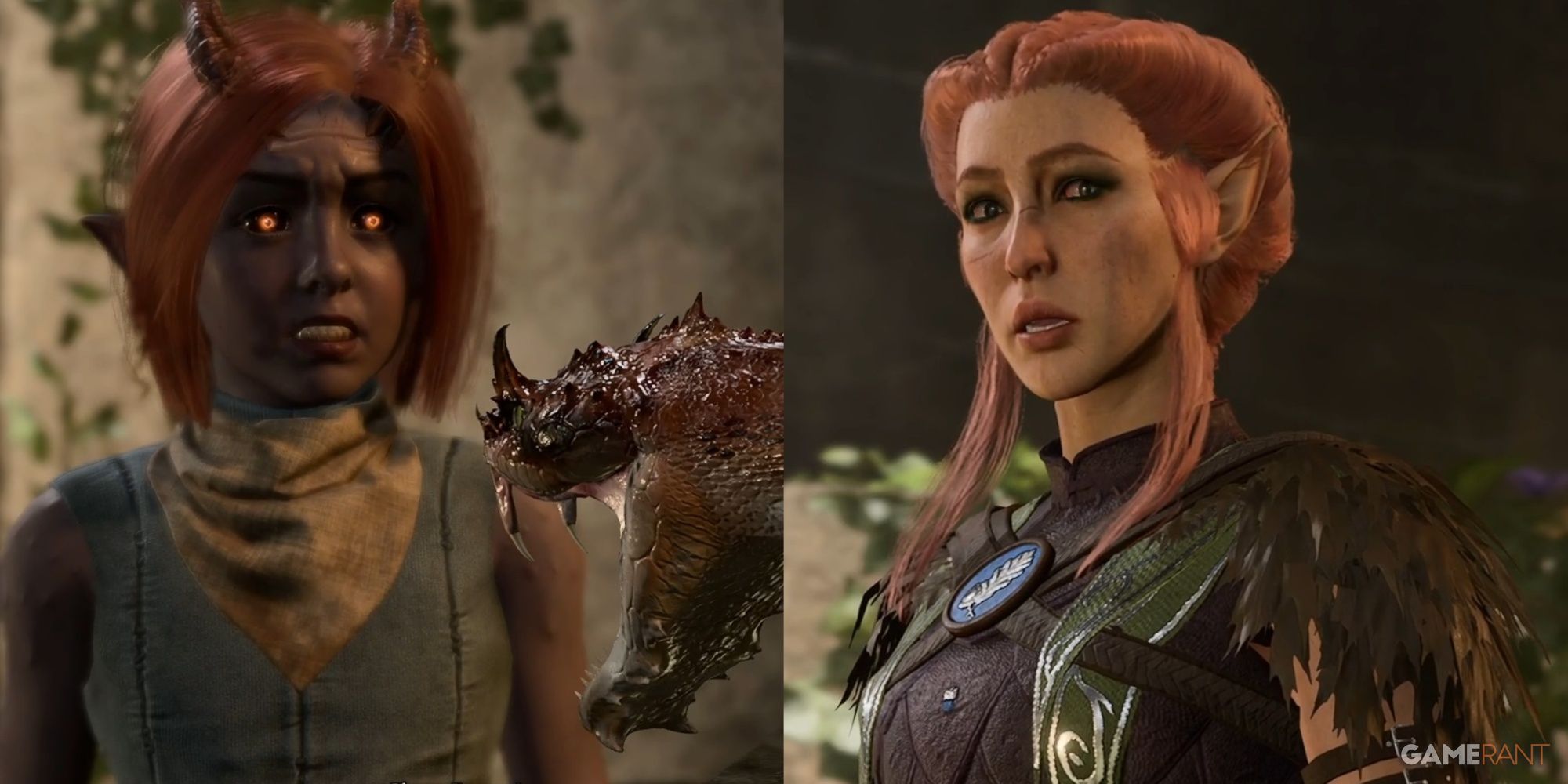The average virtual theater company can’t afford the rights to perform the latest Broadway hits, so they often rely on the tried-and-true (and public domain) classics like Shakespare to bring the performing arts to the digital realm. For The Firebird Theatre in Final Fantasy 14, their latest performance was from the works of Arthur Conan Doyle–the mysteries of Sherlock Holmes.
The performances of A Scandal in Aldenard, an adaptation of the Sherlock Holmes mystery A Scandal in Bohemia for the world of Final Fantasy 14, ran through the end of May on the Faerie server. During the last week of performances, Game Rant sat down with Stanzek Rosyasch, the actor for Watson, Holmes’ faithful assistant, about the ways the adaptation brought the often wallflower-y character to life.
5:43
Related
Final Fantasy XIV: Dawntrail – Full Trailer
Check out the full trailer for Final Fantasy XIV: Dawntrail, an upcoming expansion pack set to release in July 2024.
Breathing Life into the Audience Stand-In
In the classical renditions of Holmes stories, Watson is typically quiet, taking notes, and providing the story’s framing narrative. He follows Sherlock around, always observant and always recording, like a Victorian camera crew. As the years went on and the classical Holmesian canon was reinterpreted in different forms, Watson largely remained the audience surrogate, clinging on as a “ride or die” friend for Sherlock, Rosyasch explained.
“Watson absolutely serves as an audience stand-in. As an example, when the AMP reveals his true identity of Hroderic Thorne, no one in the audience will know who that is. However, Watson knows who that is and is suddenly quite nervous about the potential situation. In that moment, he’s a guide to the audience, saying “You should care about who this person is. This is a big deal.”
Watson also has an ability to ground stories that can often get swept up in their larger-than-life characters. With people like Sherlock Holmes or Irene Adler running around, having someone who is essentially an ordinary ex-military doctor in the mix gives a relatable emotional center for the audience to connect with.
Watson Knows One Thing Better Than Holmes
Rosyasch’s Watson also puts Sherlock in needed context like many memorable iterations of the character. Where Holmes goes around monologuing in his traditional style, a reaction added into the script for Rosyasch gives Watson the role of emotionally anchoring the Holmes antics. Similarly, the script Rosyasch used gave him a larger part in scenes where Watson simply acted as that Victorian camera crew, passively retelling Holmes’ adventure. This helped to create a Watson character more fit for stage than page, as it were. Watson also adds some great moments of comedy to the story simply by being the most grounded and relatable character in a script of literary titans, Rosyasch explained.
During scene 6, he witnesses his friend get into what equates to a fist fight with two street thugs. It all goes according to plan, of course–this is Holmes we are talking about. After this, during a small interlude, Watson is alone while the lights dim and rise to signify the passage of time. When he believes no one is watching, he does what every young boy has done after they saw an amazing fight scene in their favorite show or movie: he pretends he’s fighting the thugs and starts shadowboxing with no one. Naturally, that’s when Holmes shows up to startle Watson and elicit some laughs from the audience!
The story told in A Scandal in Aldenard starts with Watson having a successful, and busy, medical practice. Viewers are introduced to an overworked doctor who still finds time to write books about his adventures with his friend Sherlock. Holmes, true to form, finds Watson’s recounting of events to be overly emotional, burying his cool logic with pathos. Watson makes a statement at this moment about being the audience surrogate. As Rosyasch put it, “Logic is less astounding after-the-fact.” Audiences want the emotional connection.
Despite this, Rosyasch characterizes Watson as a “ride or die friend” who is instantly entranced by the latest mystery, and the game is on. Watson is as mystified by Holmes’ abilities as the audience, but in contrast to Holmes, he understands what makes a good story and what makes a good case are two different things.
There are a lot of adaptations of the stories of Sherlock Holmes. This performance isn’t even the only one in Final Fantasy 14, as the main game’s Hildibrand questline draws from the rich well of comedic adaptations of literature’s greatest detective. While less a direct parody than Herlock Sholmes from some games, Hildibrand Manderville certainly evokes some of the iconography of Sherlock Holmes in a more slapstick and silly setting that tackles issues with sometimes surprising narrative weight.
/cdn.vox-cdn.com/uploads/chorus_asset/file/24401977/STK071_ACastro_apple_0001.jpg)








